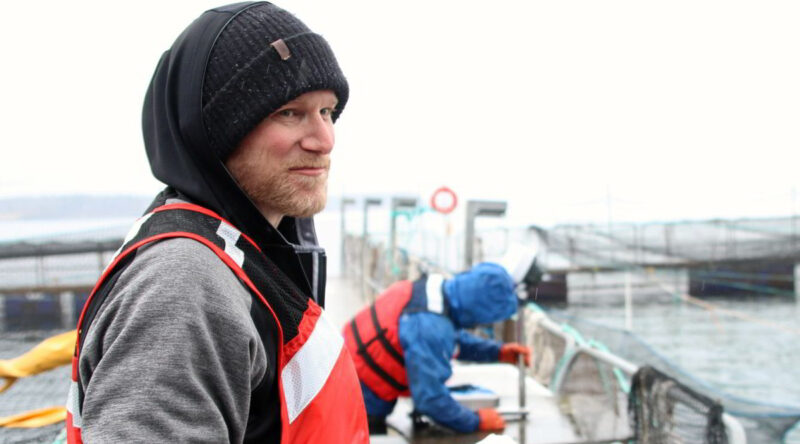Washington okays fish farms using science, rejects activism
Decision to allow steelhead fish farms in Washington waters hailed as a “victory, not only for science, but also for food security and job creation in rural areas”
By Fabian Dawson
SeaWestNews
Cooke Aquaculture, a Canadian seafood farmer, has been given permission to raise Steelhead at four of its sites previously used to raise Atlantic salmon in Washington State’s Puget Sound.
The of State of Washington’s Department of Ecology approved the permit modification application from Cooke making it possible for the company to raise female, triploid steelhead (Oncorhynchus mykiss) at the four sites for a minimum of five years.
“This decision is a victory, not only for science, but also for food security and job creation in rural areas,” said Jeanne McKnight, executive director of the Northwest Aquaculture Alliance (NWAA).
“Despite the concerted misinformation campaign that some anti-aquaculture ENGO groups have waged against marine aquaculture, in the end, such groups failed to prove any negative impacts of fish farming on the marine environment,” she said.
“We appreciate the professionals who work for our state agencies for seeing past the misinformation campaign and letting science rule the day.”
In addition to the Department of Ecology’s review of water quality permits, the Washington Department of Fish and Wildlife (WDFW) previously spent one year analyzing potential impacts to Puget Sound, during which experts analyzed more than 150 studies on marine aquaculture. In the end, WDFW concluded that farming steelhead posed no significant risk to the marine environment.
Cooke’s operations in Washington has been under attack by a coalition comprising the Center for Biological Diversity, the Center for Food Safety, the Wild Fish Conservancy and Friends of the Earth, which came together to block approval of the seafood farmers’ plans.
Washington’s fish farms have operated in Puget Sound since the 1980s under an assortment of owners throughout the years. In 2016, Cooke Aquaculture Pacific purchased the farms, retained all its rural workforce and began investing to modernize the operations.
in 2017, the company faced some $332,000 in fines over water quality after hundreds of thousands of Atlantic salmon escaped a Cooke net-pen structure.
Following the escapes, the Washington Legislature in March 2018 voted to phase out farming of non-native fish — including Atlantic salmon — in Washington waters.
This vote, described as an ‘emotional response by politicians’, was cast despite there being no example of the transfer of disease from farmed salmon to wild fish ever being documented by a regulatory agency in Washington.
Millions of Atlantic salmon have been intentionally released into Pacific Northwest rivers and lakes, beginning more than a century ago and dozens of attempts were made to establish viable Atlantic salmon populations on the West Coast. All the documented experiments concluded that no spawning populations had survived because farmed Atlantic salmon are poor colonisers when competing with wild Pacific salmon.
Cooke’s move to raise all-female, sterile (triploid) rainbow trout/steelhead now allows it to continue operating in Washington waters under a joint-venture with the Jamestown S’Klallam Tribe.
Outside Canada, the New Brunswick-based company has farming operations across the United States, Chile, Spain, Scotland, Argentina, and Uruguay, employing about 9,000 people with annual sales over $2 billion.
“As an industry, aquaculture is a job-creator, bringing much-needed employment to rural areas where jobs are scarce. It also attracts a range of support businesses that also provide direct and indirect economic benefits,” said McKnight.
The Washington decision comes in the wake of plans to phase out salmon farms in the neighbouring BC’s Discovery Islands, despite nine-peer reviewed studies that showed the operations had virtually no impact on wild stocks migrating through the area.
Bernadette Jordan, Canada’s Minister of Fisheries and Oceans, who made the pre-Christmas announcement to phase out the salmon farms, admitted that science took a back seat to social licence when making the decision.
Despite voluminous evidence by local, national and international scientists, that salmon farms pose a minimal risk to wild stocks, anti-fish farm activists working with some First Nations in BC wanted them ousted from the seas to grow fish on land.
This activist-agenda hides the fact that growing fish on land will increase greenhouse gas emissions, drive the industry away from remote coastal communities to bigger markets in the US and put enormous pressure on land and freshwater resources.
The closure of salmon farms in the Discovery Islands, which had been operating for 35 years, will result in 1,498 people losing their jobs, mostly in the coastal communities of North Vancouver Island, an initial estimate by the industry shows.
The closures over the next 18 months will also result in the loss of $379.7 million in economic output for the region, a labour income loss of $84.6 million and a tax hit for the region amounting to $21 million.
(Main image shows a worker at Cooke Aquaculture’s Hope Island salmon farming site in Washington State. Photo: Cooke)

